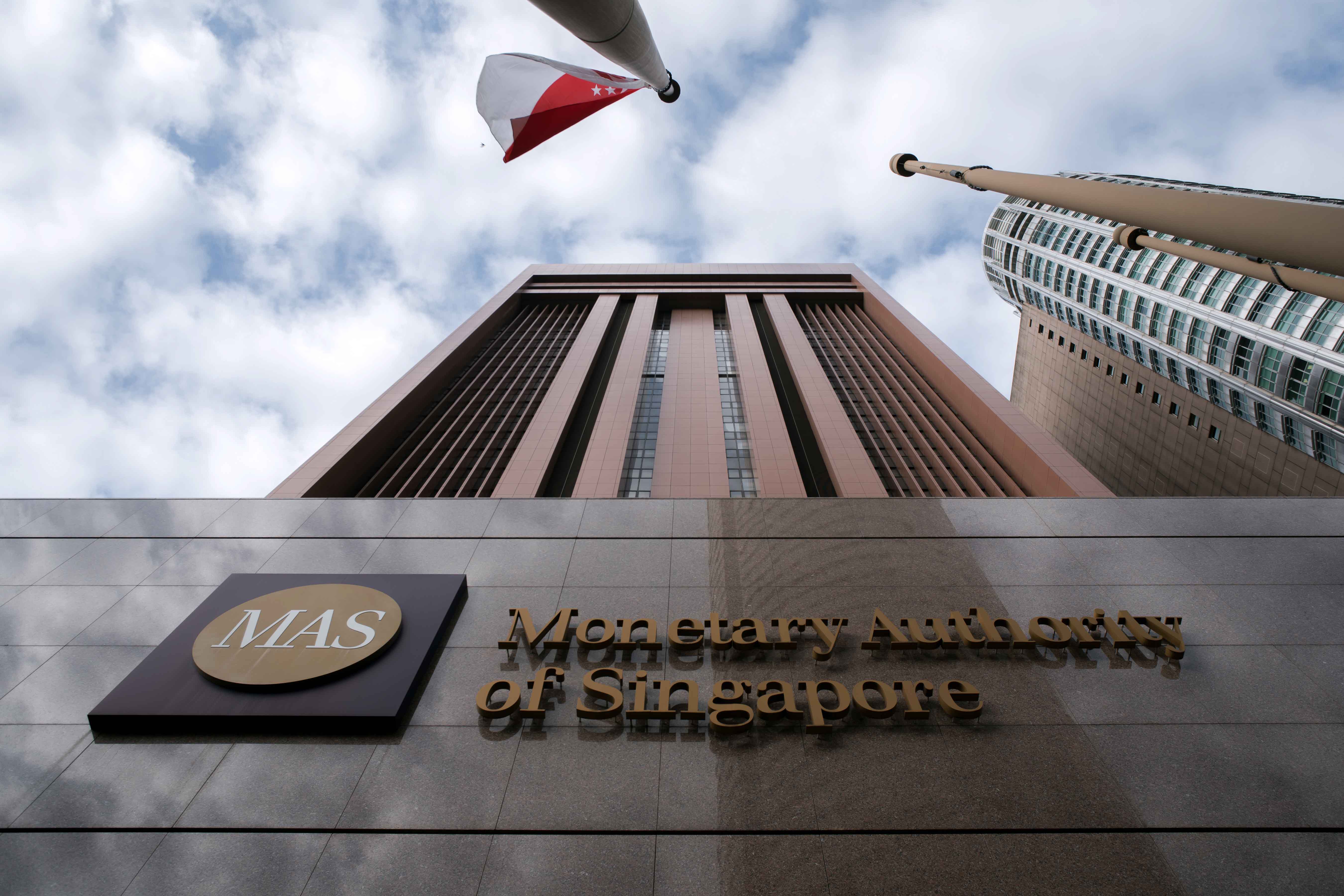MAS Blocks XM and OctaFX and I Really Don't Care About It
A contrarian take on why the recent platform blocking shouldn't surprise savvy investors
Just a few days ago, on 6 June 2025, the Monetary Authority of Singapore (MAS) announced something that sent ripples through the influencer marketing space but left me entirely unmoved. The regulator, working with the Singapore Police Force, declared that two popular trading platforms—OctaFX and XM—would be blocked from 20 June 2025 for operating without the proper licences under the Securities and Futures Act.
According to the official MAS statement: "Police investigations have revealed that both Octa and XM offered and marketed their services to customers in Singapore without licences, which is in breach of the SFA." MAS Media Release
The announcement has sparked considerable discussion on platforms like Reddit, where one user aptly noted: "A lot of influencers did this especially with octa. They advertise trading FX with low fees but not checking if the business is legit, reputable and have the necessary licenses to operate." Reddit Singapore FI
"But here's my take: I really don't care about this development.
Let me explain why, and more importantly, what this teaches us about making better investment decisions."
Why This Doesn't Surprise Me (And Shouldn't Surprise You)
First, let's acknowledge something crucial about our audience. I believe that The Financial Coconut readers, and indeed the broader community of serious retail investors, are self-selecting. You're here because you're shrewd, inquisitive, and generally more informed than the typical social media scrolling punter. Whilst some may have been swayed by the relentless marketing campaigns and signed up for these platforms, I suspect the numbers are relatively minimal amongst our community—though I'm happy to be corrected if proven wrong.
The reality is that both OctaFX and XM have been on MAS's Investor Alert List for years. OctaFX, in particular, has been listed since 2020, making this week's blocking more of a long-overdue administrative action than a shocking regulatory surprise.
The Influencer Industrial Complex
This brings us to a broader issue that extends far beyond these two platforms. Many influencers and social media key opinion leaders (KOLs) in the financial space are, quite frankly, peddlers of inferior and questionable tools. This isn't necessarily malicious—it's simply that they often lack the rigour to properly evaluate what they're promoting.
These content creators frequently work from scripts provided by marketing agencies, focusing on engagement metrics rather than fiduciary responsibility. They're incentivised to create compelling content, not conduct thorough due diligence on complex financial products.
Here's where I draw a hard line: I will never take advice from an influencer.
This principle has served me well, and I'd encourage you to adopt it too. Influencers excel at entertainment and engagement, but financial advice requires a level of analysis and accountability that rarely aligns with the influencer business model.

Are Finfluencers Regulated? Hear more about what we discussed in our Chills with TFC episode.
The Ecosystem of Responsibility
However, we cannot simply pin all the blame on influencers trying to make a living. They're operating within a system that incentivises them to promote products that pay the highest commissions. Behind every sponsored post, there's a product owner who consciously chose to target Singaporeans despite lacking proper licensing, an agency facilitating the relationship, and ultimately, consumers making purchasing decisions.
As I've often said: don't blame the seller—they're always selling. My focus is on educating the buyer to make better decisions.
Understanding How Brokers Actually Make Money
Here's a crucial lesson about brokers that every investor should understand: they are middlemen, and they make money in three primary ways:
- Transaction fees from your trades
- Interest on idle capital by pooling client funds and reinvesting them
- Trade and flow data (an increasingly valuable revenue stream)
This explains why brokers love active traders and are less enthusiastic about long-term investors. Traders are whales to these platforms—they generate consistent transaction fees and provide valuable trading data. This is why you see brokers creating increasingly sophisticated tools: advanced charts, leverage options, complex derivatives, and gamified trading interfaces.

And here's the question you need to ask yourself: Do you want a durian or a coconut? Durians might be on promotion and aggressively marketed to you, but if all you really want is a coconut, why get distracted by the sales pitch?
For long-term investors (which I presume most of our readers are), only three things truly matter when selecting a broker:
- Low fees that don't erode your returns over time
- High interest on idle cash to maximise the opportunity cost of uninvested funds
- A strong, well-capitalised middleman that won't collapse or face regulatory issues
Currently, I believe Interactive Brokers represents the best option in this regard. With commission rates as low as 0.08% for Singapore stocks and USD 0.005 per share for US equities (minimum USD 1.00), plus competitive interest rates on cash balances, it ticks all the boxes for serious long-term investors.
The Shiny Object Syndrome
This brings us to those enticing "free trades" and "sign-up bonuses" that proliferate across social media. These are classic loss leaders designed to acquire customers, but they rarely indicate a platform's actual quality or long-term viability.
The bigger problem is one of bandwidth. As busy working professionals or business owners, we have limited time and mental energy to thoroughly evaluate every financial product that crosses our path. We're juggling 101 different priorities, so we often defer these decisions to "experts"—or in the modern context, "finfluencers"—who have supposedly built their reputation on understanding finance and translating it into accessible language.
But this delegation of responsibility is where many investors go wrong.

A Practical Framework for Due Diligence
For time-pressed individuals, here's a simple but effective approach: regularly check the MAS Investor Alert List before engaging with any unfamiliar financial product or platform.
This list provides crucial information about entities that may be operating without proper authorisation. However, a word of caution: just because a platform isn't on the alert list doesn't automatically mean it's good—it simply means MAS isn't actively concerned about its operations at that moment.
I believe MAS tends to err on the side of caution, which is entirely appropriate given the regulatory environment. At the very least, you should be aware of this resource and consult it whenever you encounter an unfamiliar financial product.
For additional verification, check the MAS Financial Institutions Directory to confirm whether an entity is properly licensed to operate in Singapore.
Taking Personal Responsibility
Ultimately, this situation reinforces a fundamental principle: we are responsible for our own financial decisions. Whilst we rightly expect the state to provide protection through regulatory frameworks and legal recourse, we cannot be absolved of all responsibility in today's investment landscape.
Rather than focusing energy on pursuing sellers (who will always be selling), let's concentrate on becoming better, more discerning buyers. This means:
- Developing a healthy scepticism towards promotional offers
- Understanding the economic incentives behind financial products
- Consulting official regulatory resources before making decisions
- Prioritising substance over marketing gloss
The Coconut Community Advantage
I have genuine faith in our community's collective wisdom. The Financial Coconut readership represents a sophisticated audience that values education over entertainment, substance over sensationalism. This recent regulatory action serves as a reminder of why these principles matter.
The next time you encounter a heavily promoted financial product—especially one offering seemingly too-good-to-be-true terms—remember this moment. Ask yourself whether you're being sold a durian when all you really need is a coconut.
In the end, building wealth isn't about finding the flashiest platform or the most generous sign-up bonus. It's about making consistent, well-informed decisions using properly regulated, cost-effective tools that align with your long-term objectives.
The XM and OctaFX blocking is not a crisis—it's a teachable moment. Let's use it to become even better stewards of our own financial futures.
About The Author: This piece reflects the author's personal views on regulatory developments and investment platform selection. Always conduct your own research and consider consulting licensed financial advisers for personalised investment advice.
Disclaimer: This article is for educational purposes only and does not constitute financial advice. Past performance is not indicative of future results.
Related Resources:
Let us know what you think about this topic, and what do you want to hear next.
You can now be our community contributor and make a pitch to have your favourite personality be on our show.
Join our community group and drop us your insights on this topic.

-4.png?width=50&name=Square%20(2)-4.png)








Let us know what you think of this post